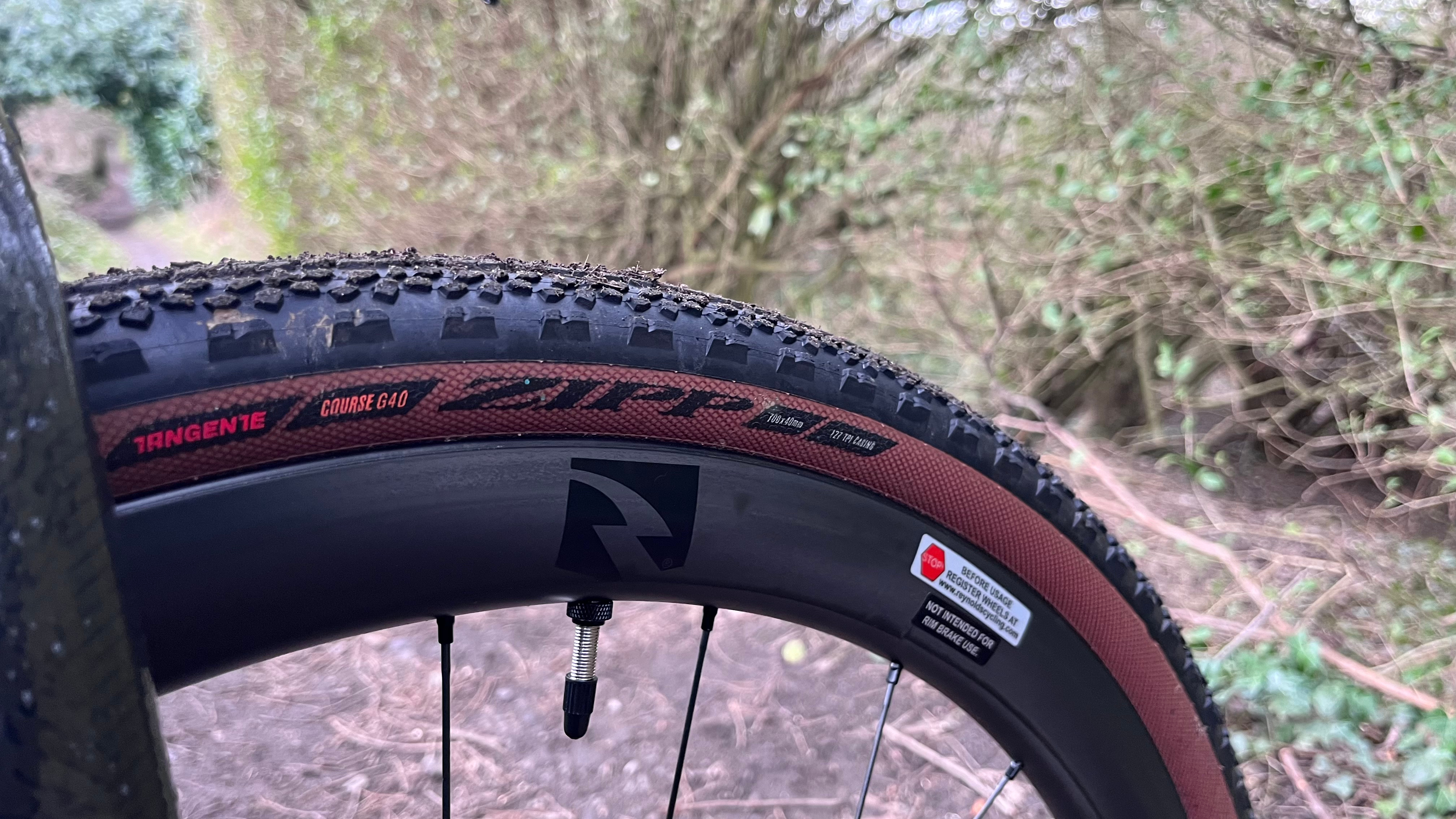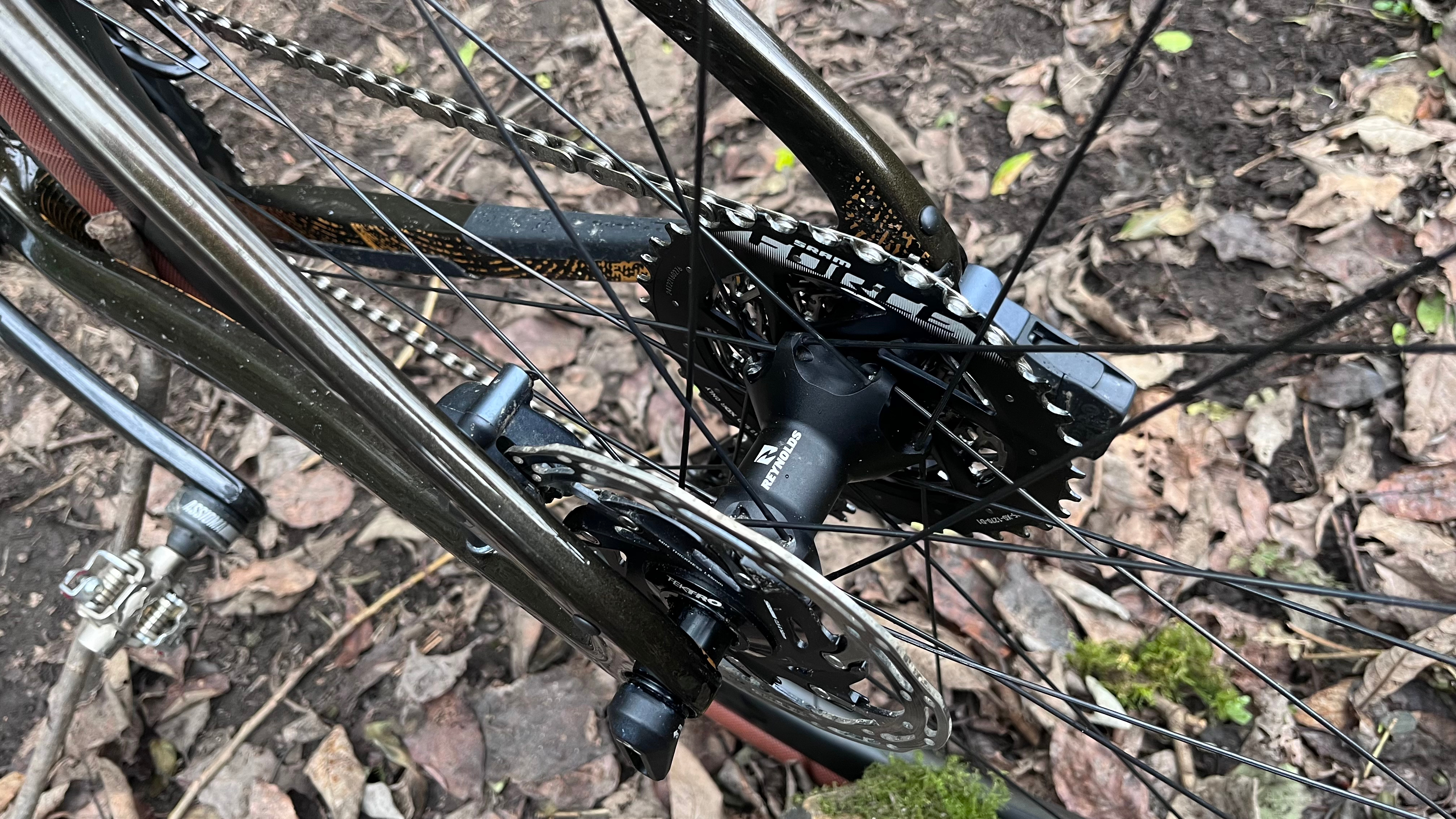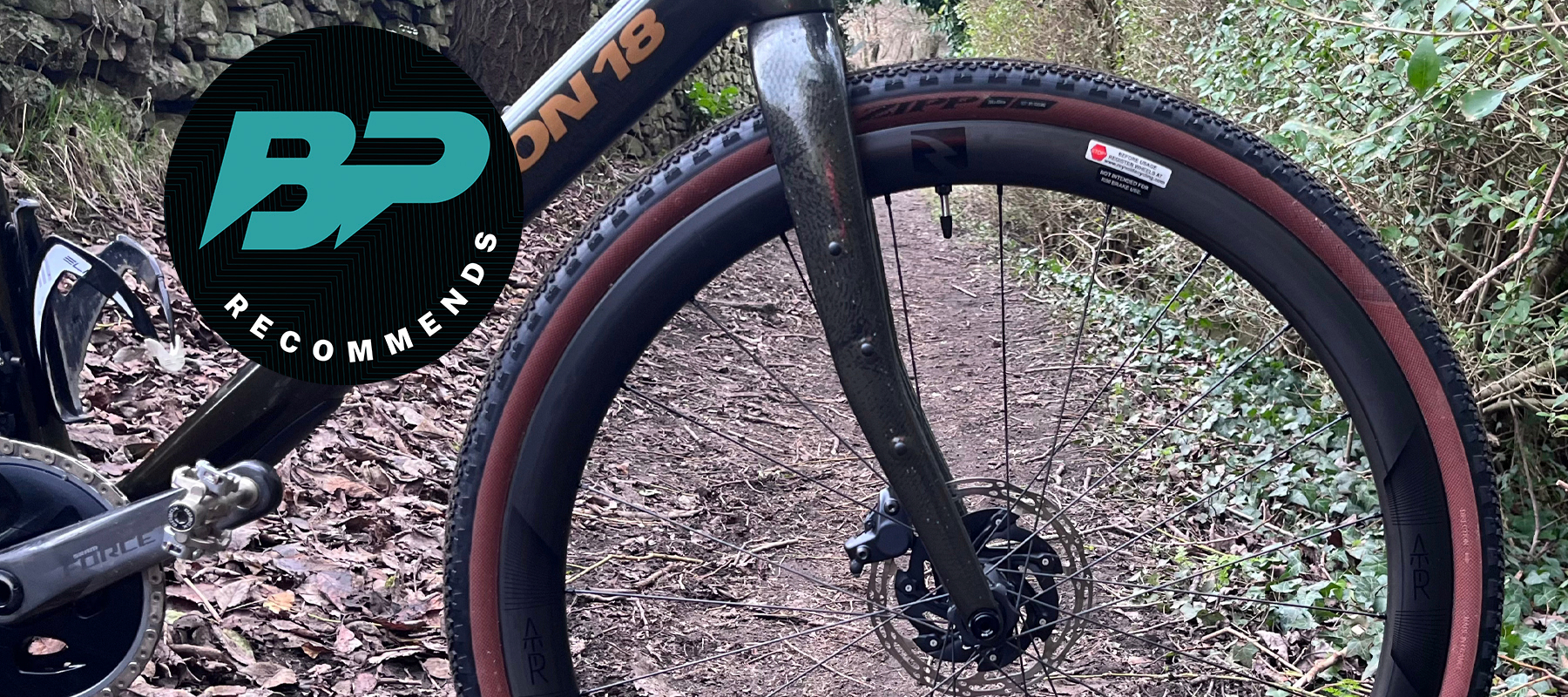Bike Perfect Verdict
An impressively quick, smooth, and reliable set of hoops, though a relatively narrow rim width limits wide rubber options, but they perform great for those riding on tamer trails and occasional road miles.
Pros
- +
High-quality construction
- +
Quick acceleration
- +
Stiff but not too harsh
- +
Work well on the road and off
- +
Solid, reliable build
Cons
- -
Freehub engagement is on the slow side
- -
Rim a touch narrow for wider rubber
- -
Better options out there for truly rough gravel riding
- -
Crash replacement setup falls short compared to other brands
Why trust BikePerfect
Reynolds has been making high-end carbon wheels for years now, and the latest ATR wheels are part of their competition range which offers narrower, lighter options compared to their adventure range, which offers more robust gravel options. The ATRx I have had on test has been used on both gravel and all-road bikes through a pretty wet and wild winter, so how did they compare to the best gravel wheels out there?

Design and specifications
The ATRx is the mid-tier model of three in the Reynolds competition wheel range. I Had the 700C version on test, but it is also available in a 650B version, though I'm not sure who the relatively narrow-rimmed smaller version would appeal to. All models use the same rim shape, though the base version is heavier with a more budget-friendly finish.
The carbon rim is on the deep side for a true gravel wheel at 40mm deep with a 30mm external width and 23mm internal. Its blunt profile bulges out to 32mm wide at its widest, giving it a good mix of aerodynamic performance without being adversely affected by crosswinds. Reynolds says the hooked rim design is good for 28mm to 45mm wide tires, though 45mm is pushing it. I tested with a 40mm Zipp tire for the majority of testing, which I think is as wide as I would want to go on these.
The big differences come in the hubs, and the top-spec option uses an Industry Nine I9 setup. The ATRx model I had on test uses Reynolds' hubs, which feature a four-pawl freehub with ten degrees of engagement. These are connected to the rim using Sapim's CX Delta aero profile race spokes with external alloy nipples, which are lighter but less robust than the brass versions used on the base model. Nothing exceptional here spec-wise, but in keeping with Reynolds' claims on longevity and user-friendliness.
The ATRx features a higher-quality painted finish over the cheaper standard ATX and uses a water transfer graphic that gives the rim a really clean, classic subtle look. I liked the black-on-black aesthetic and think they would look great on any bike, though those who like a flashier setup might not be so keen.
My pair came in at 1,541g with tubeless valves that are included, which is less than the 1,620g Reynolds quote. The valves have a brass finish and, although trouble-free during testing, look a little cheap compared to anodized valve offerings from brands such as DT Swiss or Hunt and are missing a valve core remover tool. I had the SRAM XDr freehub version, a Shimano version is available, too, but this needs to be ordered separately.
Reynolds offers a lifetime guarantee against manufacturing defects as well as a crash replacement policy that gives 40 percent off a replacement wheelset if you have the misfortune of crashing, which is reassuring, though not as comprehensive as offerings from brands such as Reserve. They sit at the higher end price-wise, as you would expect for a fancy carbon wheel at $1,699 / £1,500 / €1,710, but deals online make them much more competitive.

Performance
The setup was straightforward, and the hooked rims come already taped for tubeless. I used Zipp Tangente G40 tires for off-road and Schwalbe G-One Speeds for road miles during testing on my recent Rapha Festive 500. Both tires went up the first time when setting up as tubeless, and neither lost any air from low-pressure burping or sealing issues.
The ATRx is a stiff wheel compared to a more comfortable pure gravel option like the ERE Research Tenaci GA40, but not so stiff that they were uncomfortable. It was more a feeling of efficiency than harshness I got from the wheels. They lacked the damped feel of others on chunkier rocky or rooty sections, but performed well on smoother terrain and asphalt. On prolonged rough sections, the stiffness has a negative impact on comfort, but whether the balance between the two is correct depends on your definition of gravel and the trails you ride.
This combination of low weight and stiffness translates into quick accelerations and a nimble feeling when paired with decent fast rubber. The ATRx replaced a relatively heavy set of DT Swiss G1800, and the drop in mass was instantly noticeable on climbs, particularly short steep affairs when out of the saddle. The majority of my testing was on the Argon 18 Dark Matter, a light gravel bike that veers toward the adventure end of the spectrum. Fitting these gave the bike a more poised race-like feel, with snappier acceleration and lighter changes of direction.
They start to feel a little out of their depth on rockier and technical trails, which is no great surprise. The combination of stiffness paired with a relatively narrow inner rim width means there is not as much support or comfort available, but to be fair to Reynolds, they do the G-series of wheels to cover the rowdier end of the spectrum. Although not described as a full-on gravel wheel, I had zero issues through testing, with the rims showing no damage and spoke tension remaining taut and tight.
The ATRx works well as an all-road wheel too. These are a great option for those who mix road and tamer gravel sections. They are close to the best high-end aero road wheels at holding speed and are responsive to hard efforts and out-of-the-saddle climbing. They felt very fast when fitted with wide (for road) rubber but still had enough grip and compliance for gentle trails. They would also be great for the occasional mountain sportive, so if you mainly ride gravel but have an eye on events like the Etape or Maratona, then these should be on your radar.

Verdict
The Reynolds ATRx is a great all-around high-performance wheelset that works best on smoother terrain and occasional asphalt rides, though there are better options out there if your gravel riding is on the rowdier end of the spectrum.
They are light, smooth, and responsive, making a noticeable difference to the feel of the bikes I tested them on. Reynolds' claims of longevity hold true, too, with zero issues during many gravel and road miles this winter.
Tech specs: Reynolds ATRx wheels
- Price: From $1,699 / £1,500 / €1,710
- Inner Rim Width: 23mm
- Outer Rim Width: 32mm
- Rim Depth: 40mm
- Diameter: 700C
- Spokes: Front 24, rear 24
- Weight: 1541g (including tape and valves)
- Hub: Front Reynolds Hub | Rear Reynolds Hub
- Engagement: 10 degrees
- Pawls: Four

Neal has been riding bikes of all persuasions for over 20 years and has had a go at racing most of them to a pretty average level across the board. From town center criteriums to the Megavalanche and pretty much everything in between. Neal has worked in the bicycle industry his entire working life, from starting out as a Saturday lad at the local bike shop to working for global brands in a variety of roles; he has built an in-depth knowledge and love of all things tech. Based in Sheffield, UK, he can be found riding the incredible local trails on a wide variety of bikes whenever he can

